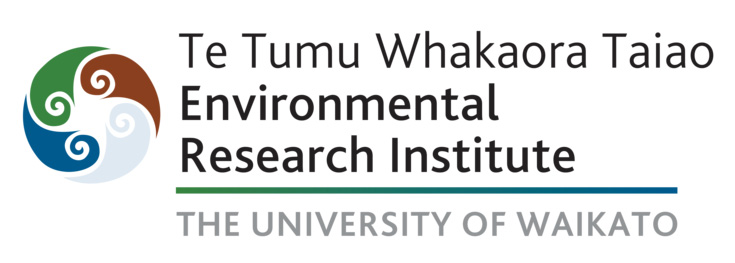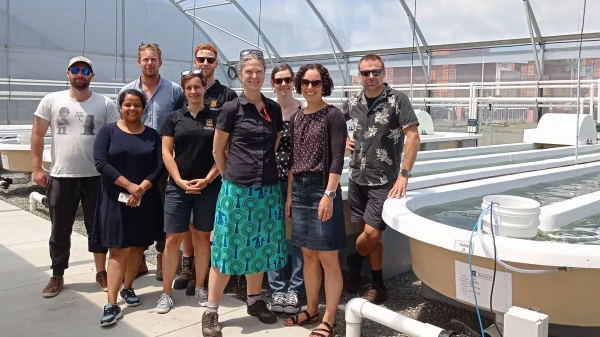
Academic Research Staff
Dr. Marie Magnusson
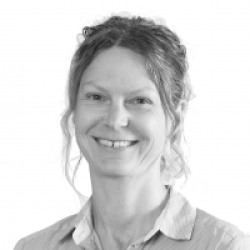 Marie is the Program Leader for the Entrepreneurial Universities Macroalgal Biotechnology Programme, and drives the focus on the development of a sustainable seaweed aquaculture industry in NZ. Her role includes the organisational and management requirements for the successful delivery of multi-disciplinary research and its commercial applications. Specific research interests are algal product development for food, feed, and human and animal health applications in circular bioeconomy models, and the use of seaweed for enteric methane mitigation in ruminants.
Marie is the Program Leader for the Entrepreneurial Universities Macroalgal Biotechnology Programme, and drives the focus on the development of a sustainable seaweed aquaculture industry in NZ. Her role includes the organisational and management requirements for the successful delivery of multi-disciplinary research and its commercial applications. Specific research interests are algal product development for food, feed, and human and animal health applications in circular bioeconomy models, and the use of seaweed for enteric methane mitigation in ruminants.
Dr. Rebecca Lawton
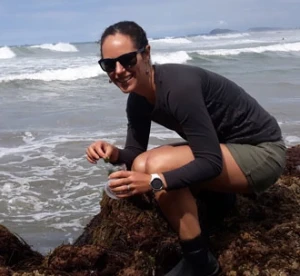 Rebecca leads our work on algal cultivation and algal bioremediation. Her research is centred on the growth and production of seaweeds and freshwater macroalgae and has two key focal areas. First, is the development of sustainable technologies to enable large-scale production of seaweeds in land-based and open-sea aquaculture. Second, is the use of live macroalgae to bioremediate nutrient rich wastewaters from a range of sources including agriculture, aquaculture, horticulture, and municipal waste treatment. A central theme of both streams of research is the integration of macroalgal cultivation and bioremediation into circular bioeconomy models.
Rebecca leads our work on algal cultivation and algal bioremediation. Her research is centred on the growth and production of seaweeds and freshwater macroalgae and has two key focal areas. First, is the development of sustainable technologies to enable large-scale production of seaweeds in land-based and open-sea aquaculture. Second, is the use of live macroalgae to bioremediate nutrient rich wastewaters from a range of sources including agriculture, aquaculture, horticulture, and municipal waste treatment. A central theme of both streams of research is the integration of macroalgal cultivation and bioremediation into circular bioeconomy models.
Dr. Chris Glasson
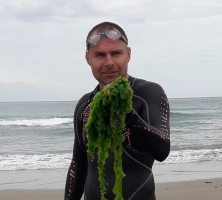 Chris leads the biorefinery and bioproducts programme. His research is multifaceted, broadly focusing on the conversion of cultivated algal biomasses into value-added products. There is a major focus on the development of innovative algal products produced sustainably in applications that transform people and their environment. These transformations primarily originate from products that target human and animal health and nutrition, sustainable agricultural practices, and sustainably produced biomaterials.
Chris leads the biorefinery and bioproducts programme. His research is multifaceted, broadly focusing on the conversion of cultivated algal biomasses into value-added products. There is a major focus on the development of innovative algal products produced sustainably in applications that transform people and their environment. These transformations primarily originate from products that target human and animal health and nutrition, sustainable agricultural practices, and sustainably produced biomaterials.
Dr. Tine Praeger
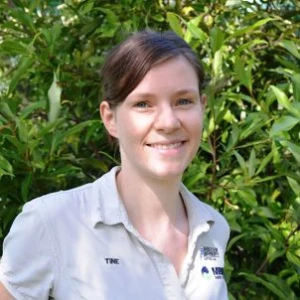 Tine's research focuses on the controlled reproduction of macroalgae at scale in order to provide a reliable source of seedlings. A central theme of her work is the development of bioremediation technologies for the aquaculture industry with a research focus on innovative, sustainable and tailored cultivation technologies of high-value seaweeds.
Tine's research focuses on the controlled reproduction of macroalgae at scale in order to provide a reliable source of seedlings. A central theme of her work is the development of bioremediation technologies for the aquaculture industry with a research focus on innovative, sustainable and tailored cultivation technologies of high-value seaweeds.
Technical officers
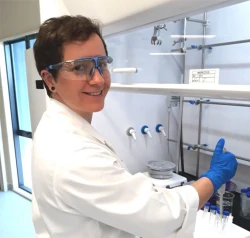 Dr. Ari Brandenburg
Dr. Ari Brandenburg
Ari manages the analytical chemistry laboratory. Her work includes the extraction and analysis of macromolecules and other products from seaweed and freshwater macroalgae. Included in this is the analysis and interpretation of chemical data, method development, instrument maintenance, and instrument training.
Chris Blake
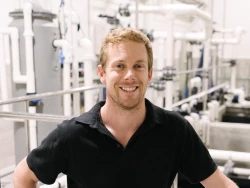 Chris manages and operates the Recirculating Aquaculture Systems (RAS) for the new Macroalgae Research Facility. Chris's work involves cultivation of novel or nascent aquaculture species, and the development of aquaculture technologies. Chris has been working in the aquaculture industry for the past nine years, principally involved with the design and operation of RAS systems for research and commercial production. His work has taken him all over the world, to places such as Norway, Malta and Ghana.
Chris manages and operates the Recirculating Aquaculture Systems (RAS) for the new Macroalgae Research Facility. Chris's work involves cultivation of novel or nascent aquaculture species, and the development of aquaculture technologies. Chris has been working in the aquaculture industry for the past nine years, principally involved with the design and operation of RAS systems for research and commercial production. His work has taken him all over the world, to places such as Norway, Malta and Ghana.
Peter Randrup
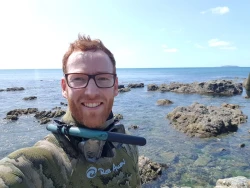
Peter provides cultivation support for both marine and freshwater aquaculture systems. His work includes the set-up of cultivation systems, development and maintenance of cultures, assessment of algal growth and nutrient uptake, and data analysis.
Logan Forsythe
Logan’s primary role is supporting both the freshwater and saltwater algae cultivation on small and large scale. Previously working in the aquarium industry, Logan brings a valuable different perspective to help solve problems.
Students
Holly Robertson
Brews and Blooms - development of novel seaweed biostimulants supporting sustainable primary industry practices (PhD in progress)
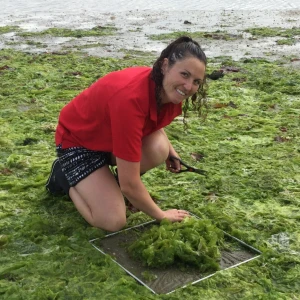 Fertiliser and pesticide use have allowed for intensification of farming; however, there are negative impacts on environmental health. Seaweed biostimulants can complement and reduce reliance on these products. Documented effects of seaweed biostimulants include enhanced plant growth and productivity, disease resistance, nutrient availability and uptake, water-holding capacity, and soil microbial activity. However, current commercial seaweed biostimulants are dominated by brown algae and generally manufactured through unsustainable chemical processes. My research will quantify the system-wide effects of novel ferments from aquacultured green seaweed Ulva spp. on agricultural systems. This study will improve current agricultural practices and generate food in a way that sustainably increases productivity.
Fertiliser and pesticide use have allowed for intensification of farming; however, there are negative impacts on environmental health. Seaweed biostimulants can complement and reduce reliance on these products. Documented effects of seaweed biostimulants include enhanced plant growth and productivity, disease resistance, nutrient availability and uptake, water-holding capacity, and soil microbial activity. However, current commercial seaweed biostimulants are dominated by brown algae and generally manufactured through unsustainable chemical processes. My research will quantify the system-wide effects of novel ferments from aquacultured green seaweed Ulva spp. on agricultural systems. This study will improve current agricultural practices and generate food in a way that sustainably increases productivity.
Alisa Mihaila
The biology of Asparagopsis armata for closed life-cycle cultivation in New Zealand. (PhD in progress)
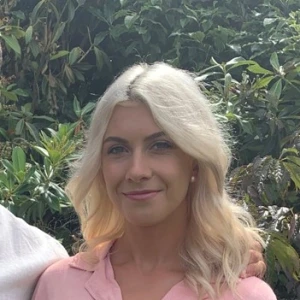 There is strong interest to commercialise the red seaweed Asparagopsis armata for its use as an anti-methanogenic feed additive for ruminants in New Zealand. However, the foundation for producing sufficient biomass of A. armata is one of the major barriers to achieving this goal. Therefore, my research aims to develop an understanding of the biology of A. armata to produce the closed life-cultivation of this seaweed in New Zealand.
There is strong interest to commercialise the red seaweed Asparagopsis armata for its use as an anti-methanogenic feed additive for ruminants in New Zealand. However, the foundation for producing sufficient biomass of A. armata is one of the major barriers to achieving this goal. Therefore, my research aims to develop an understanding of the biology of A. armata to produce the closed life-cultivation of this seaweed in New Zealand.
Indi Novak
Use of high rate filamentous algae ponds for rural wastewater treatment (PhD in progress)
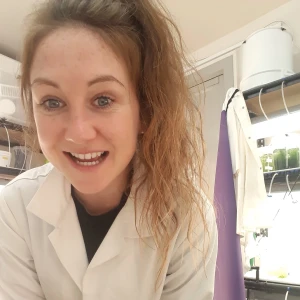 Municipal wastewater treatment plant effluent discharges are considered a major point source of nutrients and human pathogens entering into the aquatic environment. New Zealand’s wastewater treatment plants will require substantial investment and innovation over the next 10–20 years to meet the demands for population growth and climate change.
Municipal wastewater treatment plant effluent discharges are considered a major point source of nutrients and human pathogens entering into the aquatic environment. New Zealand’s wastewater treatment plants will require substantial investment and innovation over the next 10–20 years to meet the demands for population growth and climate change.
Algal bioremediation has potential to help alleviate economic pressures through cost-effective wastewater treatment, wastewater reuse and resource recovery. This research will provide the first demonstration of the feasibility of high rate filamentous algae ponds as a municipal wastewater treatment technology for primary effluent in New Zealand. Assisting in the development of high rate filamentous algae ponds as an efficient, cost effective and culturally appropriate wastewater treatment technology for rural towns in New Zealand.
Jacob Nepper-Davidsen
Developing Practices for Commercial Seaweed Production in New Zealand (PhD in progress)
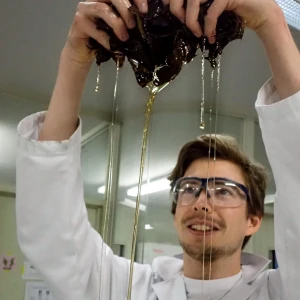 Seaweeds contain high amounts of valuable bioactive compounds which are used in food products, pharmaceuticals, and cosmetics. During my PhD, I have collected samples of the native seaweed, Ecklonia radiata from coastal ecosystems around the North Island of New Zealand. The aim of my thesis is to analyse genetic structure and biomass composition of E. radiata, to create models for quick and cost-effective biomass quality control, and to apply this knowledge to an off-shore farm
Seaweeds contain high amounts of valuable bioactive compounds which are used in food products, pharmaceuticals, and cosmetics. During my PhD, I have collected samples of the native seaweed, Ecklonia radiata from coastal ecosystems around the North Island of New Zealand. The aim of my thesis is to analyse genetic structure and biomass composition of E. radiata, to create models for quick and cost-effective biomass quality control, and to apply this knowledge to an off-shore farm
experiment in co-operation with local businesses. I am originally from Copenhagen, Denmark.
Joel Kidgell
Sulfated polysaccharides (ulvan) from Ulva ohnoi (Chlorophyta): Identifying parameters for structure-activity relationships.
PhD in progress, external student enrolled at James Cook University.
Zoe Battershill
Bioavailability of seaweed protein
MSc in progress.
Beth Ross
Agarophyton transtasmanicum – a potential novel target species for bioremediation of nutrient-enriched turbid coastal waters (MSc in progress)
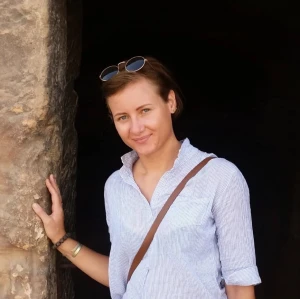 Agarophyton transtasmanicum is a red macroalgae found in harbours and estuaries around New Zealand and Southern Australia. A. transtasmanicum is an intertidal species and appears to be tolerant to wide variation in salinity, exposure, nutrient supply, and turbidity. This species also produces a nitrogen-rich amino acid thought to act as a nitrogen store known as gigartinine. Experiments have shown this species can rapidly accumulate gigartinine in response to increased nitrogen availability, such as in a nutrient enriched system. Therefore, A. transtasmanicum is thought to hold potential as a novel species for the bioremediation of nutrient-enriched estuarine habitats. My thesis aims to isolate and culture A. transtasmanicum and assess the nutrient assimilation ability of this species under varied turbid conditions representing dynamic and challenging estuarine conditions.
Agarophyton transtasmanicum is a red macroalgae found in harbours and estuaries around New Zealand and Southern Australia. A. transtasmanicum is an intertidal species and appears to be tolerant to wide variation in salinity, exposure, nutrient supply, and turbidity. This species also produces a nitrogen-rich amino acid thought to act as a nitrogen store known as gigartinine. Experiments have shown this species can rapidly accumulate gigartinine in response to increased nitrogen availability, such as in a nutrient enriched system. Therefore, A. transtasmanicum is thought to hold potential as a novel species for the bioremediation of nutrient-enriched estuarine habitats. My thesis aims to isolate and culture A. transtasmanicum and assess the nutrient assimilation ability of this species under varied turbid conditions representing dynamic and challenging estuarine conditions.
Alisa Mihaila
Anti-methanogenic properties of red seaweeds in the Bonnemaisonales family.
MSc. 2020
Indira Novak
Latitudinal differences in environmental tolerance of Oedogonium spp. in New Zealand.
MSc. 2020
Available
We welcome enquiries from students wanting to join our group. Please get in touch and we can discuss possibilities for thesis projects at Masters or PhD level.
